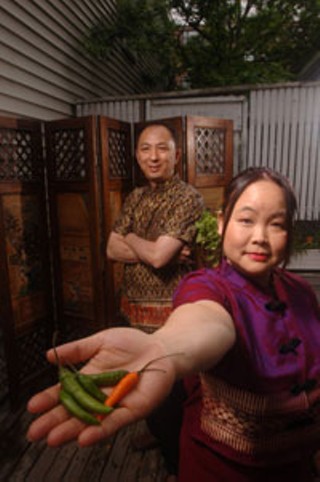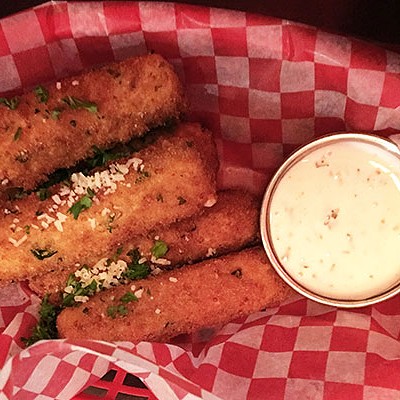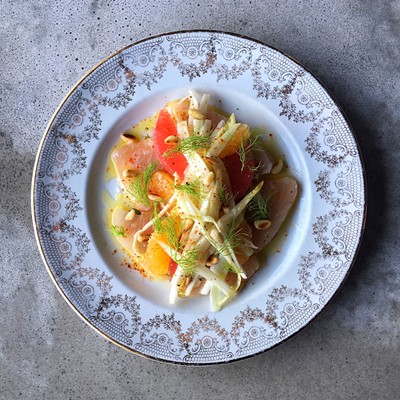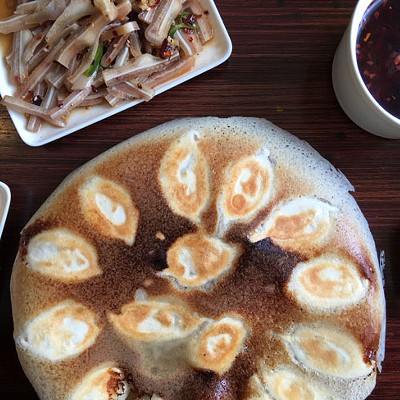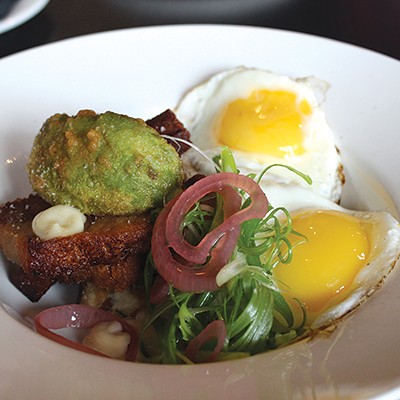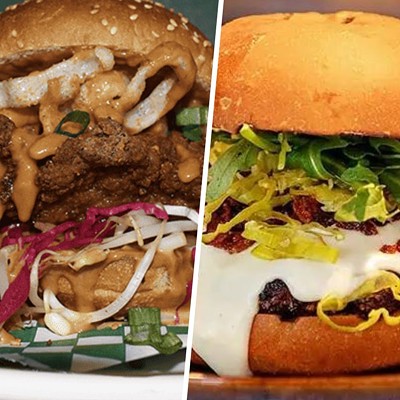Victor Woo remembers exactly what his boss said when he learned that Woo was planning to move across the country and start a Thai restaurant in Halifax.
“Are you crazy? All they eat out there is meat and potatoes. You’ll be back here in no time, begging me to give you your old job back.”
Woo had plenty of time to think and rethink his decision. He and his wife, Sue Woo, and their six-month-old daughter drove across the country in their 1992 Isuzu Trooper, packed to the roof with their belongings—and a few second thoughts.
“I kept hearing my boss’s voice in my head, and I just kept thinking, ‘What have I done?’” says Woo. “When you start a business like this, it’s like driving into a dark tunnel.”
“But life is all about challenges,” says Sue. “We hoped for the best, we worked hard and we’ve been lucky to have loyal customers.”
Five years, two restaurants and a second daughter later, that combination of hope, hard work and luck has paid off for the couple. Their original restaurant, the tiny Thai Chili on Blowers Street, was known for introducing Thai food to the city; their current restaurant, Baan Thai, now has four Best of Food plaques to hang on its wall. Devotees of Thai cuisine visit Baan Thai for its cool, comfortable decor—imported from Thailand— and for its authentic food, made with real Thai ingredients by experienced chefs whom Woo recruited from Thailand.
“If you had a particular dish in Bangkok,” says Woo, “I can guarantee that you could come here and order the same thing, and you wouldn’t be disappointed.”
Woo should know—he’s eaten more than a few meals in Bangkok. Born in India, where he spent the first 20 years of his life before moving to Vancouver, Woo fell in love with Thai cuisine on his first trip to Thailand, more than 25 years ago. “It was an overwhelming, exhilarating experience,” he says of his first Thai meal, eaten at the Guinness Book of World Records—famous giant restaurant Tumnak Thai. “All of the different flavours, the herbs, the spiciness, it tickled my tastebuds, and I thought, ‘Wow, this is a blast! This is something I’ve been waiting for, for a long time.’”
The love affair with Thai food developed over a decade of yearly trips to Thailand. Sue, born in Laos, raised in Thailand and with years of restaurant experience under her belt, also loved Thai food. When they started looking for a change from their life in Richmond, British Columbia, where he was working as a truck driver and she was working for Canadian Airlines, the idea of a Thai restaurant seemed like a natural fit. But Halifax wasn’t their first choice.
“We were actually all set to move to Winnipeg when the real estate deal fell through at the last minute,” says Woo. “Then we had to look around and find something else. We’d never really heard of Halifax before, let alone thought of moving here, until we came across a chance reference on the internet.”
After a couple trips to check out the city, the Woos decided Halifax was a city full of opportunity. “There was definitely a niche to be filled,” says Woo. “At the time, Halifax was badly in need of a Thai restaurant.”
And a Thai restaurant was what Halifax got. Now, Haligonians know where to go for their lettuce rolls, four-flamed fish and pad Thai. Its special combination of flavours and international influences is what makes Thai food special, says Woo.
“Thai food takes the best of Chinese, Laotian, Indian and Cambodian cuisine and puts it all together,” he says. It’s a cuisine that has at its heart the idea of celebrating food and the rituals of shared meals. The preparation of those meals is an act that goes beyond imitation and builds on imagination, says Sue.
“It takes imagination to look at all those different influences and come up with something new,” she says. “Just like Einstein could look at the things around him and come up with those great inventions, Thai cooks took the different tastes around them and came up with a new cuisine”—one that’s less traditional and more delicate than Laotian cuisine, uses less oil than Chinese and is more diverse than the heavily curry-based Indian food.
Those signature Thai tastes—Thai basil, chili and garlic, lemon grass, kaffir lime leaves, galangal (Thai ginger) and fish sauce —aren’t always easy to find in Halifax. Woo orders most of his ingredients from a supplier in Toronto, placing bulk orders for non-perishables and frozen foods to cut down on shipping costs. Three or four times a year, when the truck arrives, “The restaurant is full of food…rice, noodles, cans of food…it takes a lot of work to carry it all up here to the third floor and then find a place to stash it all,” says Woo, drawing pallets of food in the air with his hands, outlining the space they take up on the restaurant floor.
Perishables—those essential herbs and spices—also come from Toronto, sometimes through a local dealer, sometimes on special order. If a shipment doesn’t arrive in time, it can be a crisis, says Woo, who’s had to make an emergency call to a supplier in Toronto and have fresh Thai basil flown out to him more than once. “You can’t run a restaurant without Thai basil,” he says, shaking his head. “That’s just impossible.”
The inaccessibility of authentic Thai ingredients is Woo’s biggest business challenge. It’s expensive to fly herbs in from Toronto or Vancouver, and even then sometimes the ingredients aren’t quite right. Authentic Thai cuisine uses tiny, extremely hot bird’s eye peppers, for example, as well as miniature Thai garlic and fresh lime leaves—but here, the Woos have to make do with the slightly less hot Thai peppers, regular garlic and frozen lime leaves. As part of his ongoing mission to serve Haligonians the most authentic Thai food possible, Woo spent part of last year developing plans to start his own import business, with the idea of bringing fresh ingredients from Thailand to Halifax on a regular basis. But the cost was just too high.
“One of my favourite ingredients in Thai cooking is fresh peppercorns”—long strings of green peppercorns, which, when dried, become the black peppercorns most of us would recognize as belonging in our table pepper grinders—“they’re hot, but not too hot, and their flavour is…” he pauses, looking up, “…indescribable. The taste would take your tongue to heaven.
“The fresh peppercorns were at the top of my list for things I wanted to import from Thailand. But at a cost of $15 to $20 per pound, plus shipping, there was no way I could justify it. Imagine what that would do to the prices of the food! And then, to explain why each plate cost so much…. No. It just wasn’t feasible.”
So for now, Woo continues to have his special ingredients shipped in from across the country. But that doesn’t mean he’s abandoned the idea of an import business, or any of his other ideas. He is a man of ideas, especially when it comes to his vision for the food side of Halifax.
“Why don’t we have more Asian restaurants here?” he asks. “When I look around at the holes in the market here, it astounds me. We should have an upscale Vietnamese restaurant, a Malaysian restaurant, a Singaporean restaurant. We should have a big Chinese market, or a Chinese bakery, like the ones you find in Toronto. We need those things. This is a good city, with good people…but sometimes I still feel deprived. We could—we should—have a lot more good food. And what about a multicultural cuisine festival downtown? We could set up tents, have people eating and dancing in the streets…the opportunities here are incredible. It just blows my mind that people aren’t taking advantage of them.”

